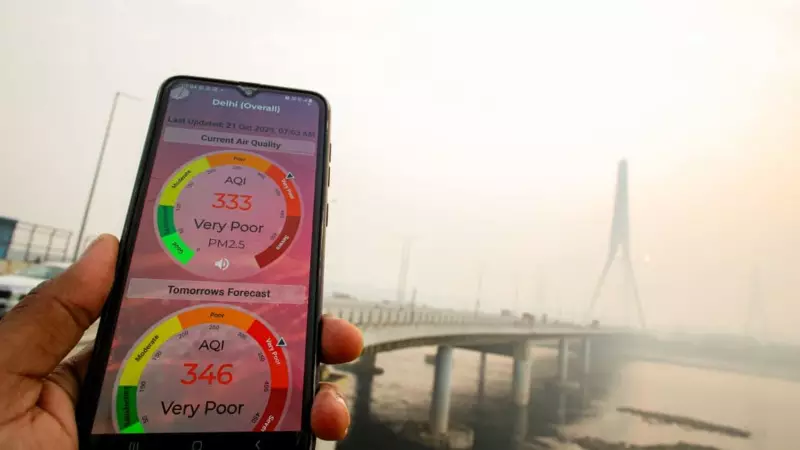
The vibrant colors and joyous celebrations of Diwali have faded, but a dangerous legacy remains hanging in the air across many Indian cities. The post-festival period has triggered a severe spike in Air Quality Index (AQI) levels, transforming the air we breathe into a toxic cocktail that poses significant threats to respiratory health.
What Toxic Air Does to Your Lungs
According to leading pulmonologists, the microscopic pollutants released during firecracker explosions penetrate deep into our respiratory system. These particles can cause immediate inflammation in the airways, leading to coughing, wheezing, and breathlessness. For those with pre-existing conditions like asthma or COPD, the situation becomes particularly dangerous, often triggering severe attacks that require emergency medical attention.
Expert-Recommended Breathing Strategies
Medical specialists emphasize that while avoiding exposure is ideal, several practical measures can help minimize the damage:
- Master Nose Breathing: Breathing exclusively through your nose acts as a natural air filter, trapping larger particles before they enter your lungs.
- Time Your Outdoor Activities: Schedule essential outdoor tasks for the afternoon when pollution levels typically decrease slightly compared to morning hours.
- Create Clean Air Zones: Keep windows closed during peak pollution hours and consider using air purifiers with HEPA filters in your most frequently used rooms.
- Hydrate Consistently: Drinking ample water helps your respiratory system naturally flush out trapped pollutants.
- Recognize Warning Signs: Persistent coughing, chest tightness, unusual breathlessness, or wheezing warrant immediate medical consultation.
Vulnerable Groups Need Extra Protection
Children, elderly individuals, pregnant women, and people with existing heart or lung conditions face the highest risk during these pollution peaks. Doctors strongly recommend that these groups limit outdoor exposure as much as possible and consistently use N95 or N99 masks when venturing outside.
While regulatory measures and cleaner celebration alternatives remain long-term solutions, these expert-backed breathing techniques offer immediate protection during what has become an annual environmental health crisis in urban India.





